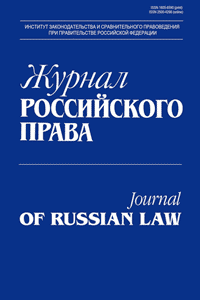Analyzed in this article is the Resolution of the Plenum of the Supreme Court of the Russian Federation No. 29 dated 30 June 2015 “On the practice of courts of law, ensuring the right to defense in criminal proceedings”. The new feature of the defendant is determined – statement of the court procedure to the temporary absent or remote defendant. It is proved that in Article 73 of the Code of Criminal Procedure, with the obvious desire of the legislator to include in the subject of proving the circumstances established in the protection contains no direct reference to the non-participation of a person to commit a crime. Epistemologically, self-confidence as the lack of evidences is not accepted as a direct proof. Indirectly, alibi is the fact that the accused person was in the other place when the crime had been committed, indicates the innocence or alias (physical disconnect of the accused person and the real person who committed the crime), or alter (physical disconnect of the accused person and the mechanism of committing the crime). It is proved that the application of these and other arguments in favor of the accused should result in their including in disprove.
alibi, alias, alter, a lawyer, the court, the investigator, the right to protection, discretionary powers.
1. Nauchno-prakticheskiy kommentariy k Ugolovno-protsessual´nomu kodeksu Rossiyskoy Federatsii / otv. red. V. M. Lebedev; ruk. avt. kol. V. A. Davydov. M., 2014.
2. Praktika primeneniya Ugolovno-protsessual´nogo kodeksa Rossiyskoy Federatsii / pod obshch. red. V. M. Lebedeva. 6-e izd. M., 2013.
3. Praktika primeneniya Ugolovno-protsessual´nogo kodeksa Rossiyskoy Federatsii / pod red. V. M. Lebedeva 5-e izd. M., 2011.
4. Sudebnoe proizvodstvo v ugolovnom protsesse Rossiyskoy Federatsii: nauch.-prakt. posobie po primeneniyu Ugolovno-protsessual´nogo kodeksa Rossiyskoy Federatsii / pod obshch. red. V. M. Lebedeva. 2-e izd. M., 2011.








